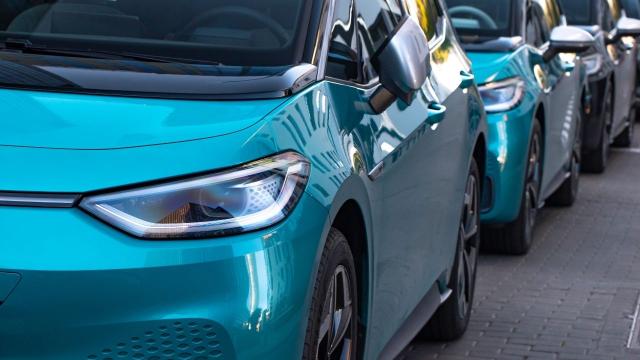Six million EVs are expected to ship in 2022, according to research from tech analysts Gartner.
That six million, global figure is made up of battery-electric and plug-in hybrid vehicles. This figure Gartner is expecting is a 35 per cent increase from 2021, which saw four million electric vehicles ship internationally.
Adding to this, a far-off expectation is that 7.6 million electric vehicles could ship internationally in 2028.
“At COP26 in November 2021, the Zero Emission Vehicle Transition Council agreed that vehicle manufacturers will commit to selling only zero-emission vehicles by 2040 and earlier in leading markets, putting pressure on the automotive sector to prepare for the decarbonisation in transportation,” says Jonathan Davenport, a research director at Gartner.
“EVs are an important powertrain technology to help reduce CO2 emissions from the transportation sector.”
But it’s not just cars.
While electric cars are expected to make up some 95 per cent of EV shipments in 2022, buses, vans and heavy trucks are expected to ship in greater volume as well.
In 2022, buses are expected to ship 198,353 units (up from 165,551), vans are expected to ship 126,607 units (up from 86,274) and heavy trucks are expected to ship 22,663 units (up from 15,171).
Who is expected to lead the charge?
China and Western Europe are expected to be the big players in EVs this year.
China’s mandate that EVs make up 40 per cent of sales by 2030 definitely demonstrates that the country wants to get serious about EVs, as does its unique battery infrastructure. Gartner predicts that 46 per cent of global EV shipments could be accounted for by China.
While China is expected to ship 2.9 million EVs in 2022, Western Europe tails behind with an expected 1.9 million units. North America is expected to ship 855,300 EVs in 2022.
What’s expected to challenge EV shipments in 2022?
Davenport added that, despite rising electric vehicle numbers, the ongoing chip shortage will continue to be an issue.
“The ongoing shortage of chips will impact the production of EVs in 2022 and while shipments of vans and trucks are currently small, their shipments will grow rapidly as commercial owners see the financial and environmental benefit of electrifying their fleets,” Davenport said.
A major challenge is expected to be the lack of fast-charging availability, both in infrastructure and in-home charging.
“Utility providers will need to increase their investments in smart grid infrastructure to cope with the growing consumption of electricity,” Davenport added.
“Additionally, to meet climate change ambitions, countries which utilise fossil fuels to generate electricity will need to redesign their power generation to respond to the transition.”
Despite this, Gartner also predicts that global public EV chargers should increase in units shipped, going to 2.1 million units this year, as opposed to 1.6 million units in 2021.
The growth of EVs internationally is very welcome, especially in Australia, where only about 1 per cent of new car sales are EVs.
If you’re interested in picking up an EV, check out the incentives in your state.
If you want to read Gartner’s 2022 research into EVs, you can read the full report here.
